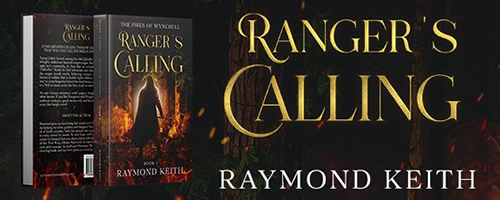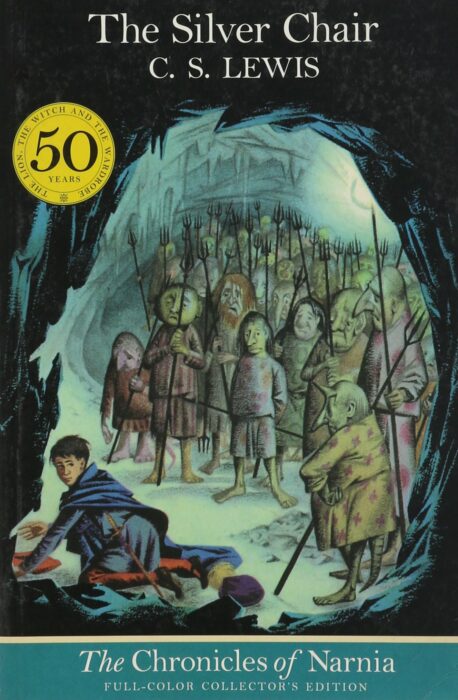Jill’s and Eustace’s Journey to ‘The Silver Chair’ Taught Me Faith and Obedience
For the last two years, I have passed through places dark as the hollow Underland that Jill and Eustace must cross in Lewis’s fourth Narnian chronicle, The Silver Chair.
COVID-19 lockdowns made me furloughed from a job I loved, waiting for an end to fear and uncertainty that never seemed to come. Eventually, I took a job I intended to last only a few months until my old position could reopen. Two months became nine months. My mental health suffered from daily stresses of long hours in an environment that carried almost physical weight of depression.
In The Silver Chair, frightening creatures capture Jill and Eustace and force them to travel underground in sunless lands. For me, those nine months felt just as abysmal. Just as Narnia’s heroes begin to question if there ever was a sun, I questioned whether I would ever emerge from the other side of that pit.
Puddleglum’s famous speech defying Underland’s queen puts the lie to her foolish, prideful declaration that there was never any world but hers. Yet I most resonate with Lewis’s early scene that sets the stage for Jill’s and Eustace’s entire journey.
Jill’s ignorance and first encounter with Aslan
At first, Jill Pole has no concept of Aslan and Narnia. Eustace only mentions their existence as a possible solution for his and Jill’s desire to escape school bullies. Jill suggests they reach out to Aslan with rituals, such as drawing a magic circle on the ground. Eustace quickly rejects these, saying those sorts of things “are rather rot. I don’t think he’d like them.”1
At first, Jill doubts Eustace. But eventually they call to Aslan. Immediately, with clear signs of divine providence, they stumble into Narnia—or rather, Aslan’s Country.
But their joy is short-lived. Jill’s bravado leads to Eustace tumbling over a cliff before a Lion. Left alone, Jill regrets coming to this new world at all. She soon meets a lion. Of course, this is the Lion, but Jill does not recognize him as Aslan, because Eustace hadn’t explained the details to her. Now Aslan explain why he has called them into Narnia—to seek and find the lost prince Rilian.2 Jill’s bravado has already made this task it more difficult.
Aslan gives Jill four signs to guide her and Eustace. This catechism must form the foundation of their journey, and Aslan commands her to “remember the Signs.”
Muddled Signs and unexpected deliverance
Of course, Jill doesn’t remember the Signs. After the difficulties of the journey and the lure of giant comforts, she stops reciting them every night. Our heroes actually fail to follow the first three Signs as clearly as Aslan commanded. But in the end, despite their failings, they rest between Aslan’s paws and find the story has still gone right. They even unintentionally free the gnomes of Bism to return to their own fantastic land beneath the earth’s crust.
Such eucatastrophe3 reflects God’s providence in our own lives. Often the failures and sorrows we create or endure bring unexpected blessings on the far side. We know that God works all things for the good of those who love him.4 As a friend of mine once put it, he weaves all the threads of our lives, the good and the bad, into his final tapestry. Though I cannot clearly state the purpose of my time in that terrible job, I know God used this time for my good by encouraging me through other people, and for others’ good of others by using me to encourage them).
During those nine months, and later days when despair threatens to steal my joy, I had to follow Jill’s example of reciting Aslan’s Signs. In my journey, one great truth has served as my light, the same truth that confronted Jill on the mountaintop: There is no other stream but Jesus from which we may drink and have life. For guidance and hope, we can only look to our good, not-safe, untamable God.
Even when world leaders and false ideologies cry out, “There is no world but ours,” we can rest, resist, and triumph in our testimony of Jesus and his salvation.

































I like what a woman on KLOVE radio said yesterday after being told her unborn son would have major medical problems. She prayed and fleeing a hurricane in Louisiana went into labor two months early. Her son was born early but was perfectly healthy. She said, ” At the end of the day, God has the Final say.”